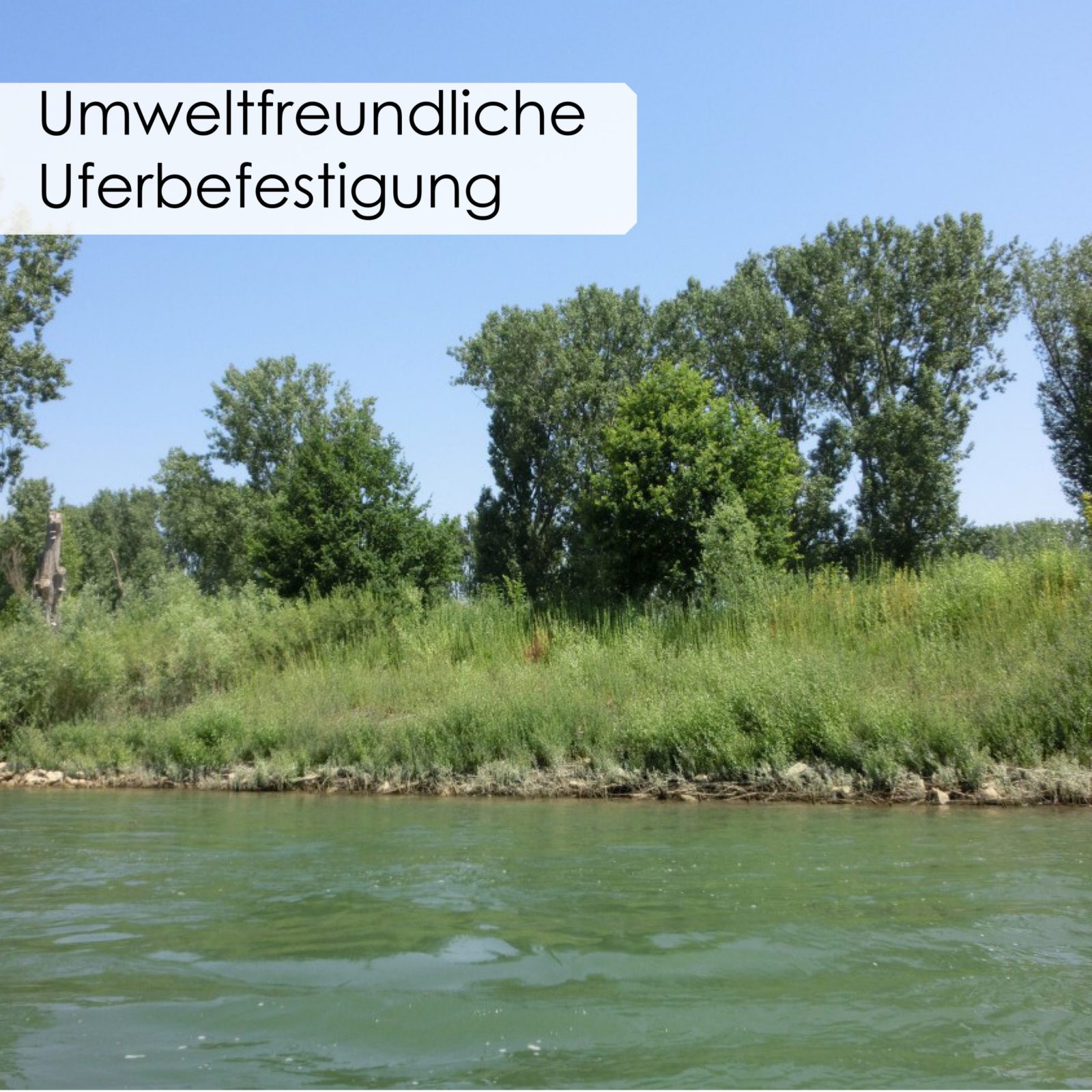[et_pb_post_title title="off" meta="off" featured_image="off" admin_label="Environmentally friendly bank reinforcement made from renewable raw materials
" _builder_version="4.6.6″ z_index_tablet="500″][et_pb_text admin_label="Environmentally friendly bank reinforcement from renewable raw materials
" _builder_version="4.8.1″ module_alignment="left" custom_padding="||0px||" hover_enabled="0″ z_index_tablet="500″ box_shadow_horizontal_tablet="0px" box_shadow_vertical_tablet="0px" box_shadow_blur_tablet="40px" box_shadow_spread_tablet="0px" sticky_enabled="0″]
Environmentally friendly bank reinforcement made from renewable raw materials
Many bank stabilisations on rivers such as the Rhine, Elbe or Weser consist of riprap. The European Water Framework Directive (WFD) calls for the replacement of these riprap structures on inland waterways above mean water level with biological stabilisation systems in order to achieve a long-term, near-natural shoreline design.
Due to the fact that plant roots can equally protect the banks and still make a valuable contribution to the conservation and creation of habitat for plants and animals, the research project "Sequentially biodegradable geotextiles for technical-biological bank stabilisation on inland waterways (Bioshoreline)" was launched.
Since 2016, the Fraunhofer Institute for Environmental, Safety and Energy Technology UMSICHT has been working with three industrial companies and the Federal Waterways Engineering and Research Institute to develop a temporary geotextile filter made of renewable raw materials that allows plants to grow in technical-biological bank protections and that degrades completely biologically. The project is funded by the Federal Ministry of Food and Agriculture (BMEL) through its project management agency, the Agency for Renewable Resources (FNR).
The project team BNP Brinkmann GmbH & Co. KG, Trevira GmbH, FKuR Kunststoff GmbH, Bundesanstalt für Wasserbau (BAW) and Fraunhofer UMSICHT combines rapidly degradable natural fibres (sisal fibres) and biobased, slowly degradable synthetic fibres made from the biopolymer polylactide (PLA) in their geotextile.
Special requirements are placed on this material: After the creation of the biological-technical bank protection, the geotextile fleece must stabilise the slope until the plants have formed sufficient roots and take over this function. Furthermore, the material must have sufficient permeability and strength and at the same time be easily rootable and biodegradable in the long term, so as not to permanently restrict the passage of microorganisms in the bank area.
The geotextile filter developed is supposed to completely decompose after three years and thus represent an environmentally friendly alternative to the previously common, less sustainable plastic filters that last for decades and are difficult to deconstruct.
The extent to which the developed geotextile meets the above requirements has been tested since the beginning of 2020 on a section of the Rhine near Worms. Here, the installed prototypes have to withstand the changing hydraulic loads of shipping. The next few years will show whether the innovative, biobased fastening system can help to green up the banks of our rivers again.
Sources:
- https://www.fnr.de/presse/pressemitteilungen/aktuelle-mitteilungen/aktuelle-nachricht/umweltfreundliche-uferbefestigung-aus-nachwachsenden-rohstoffen-im-praxistest-am-rhein
- https://www.umsicht.fraunhofer.de/de/referenzen/bioshoreline.html
- https://www.bmel.de/SharedDocs/Praxisbericht/DE/forschungsprojekte/geotextilien.html
- https://ufersicherung-baw-bfg.baw.de/binnenbereich/de
#mullandpartner #engineeringforabettertomorrow #whatwedo #news
Our business areas
Environmental and geotechnical engineering
Construction and project management
Renewable energies
Real estate development
Infrastructure
Water management
Our companies
M&P Engineering Company
M&P Engineering Company Munich
T&P Beratende Ingenieure
P&P Real Estate Consulting
P&B Real Estate Management
P&M Project Management
M&P Umwelttechnik
Please contact us
Follow us on

